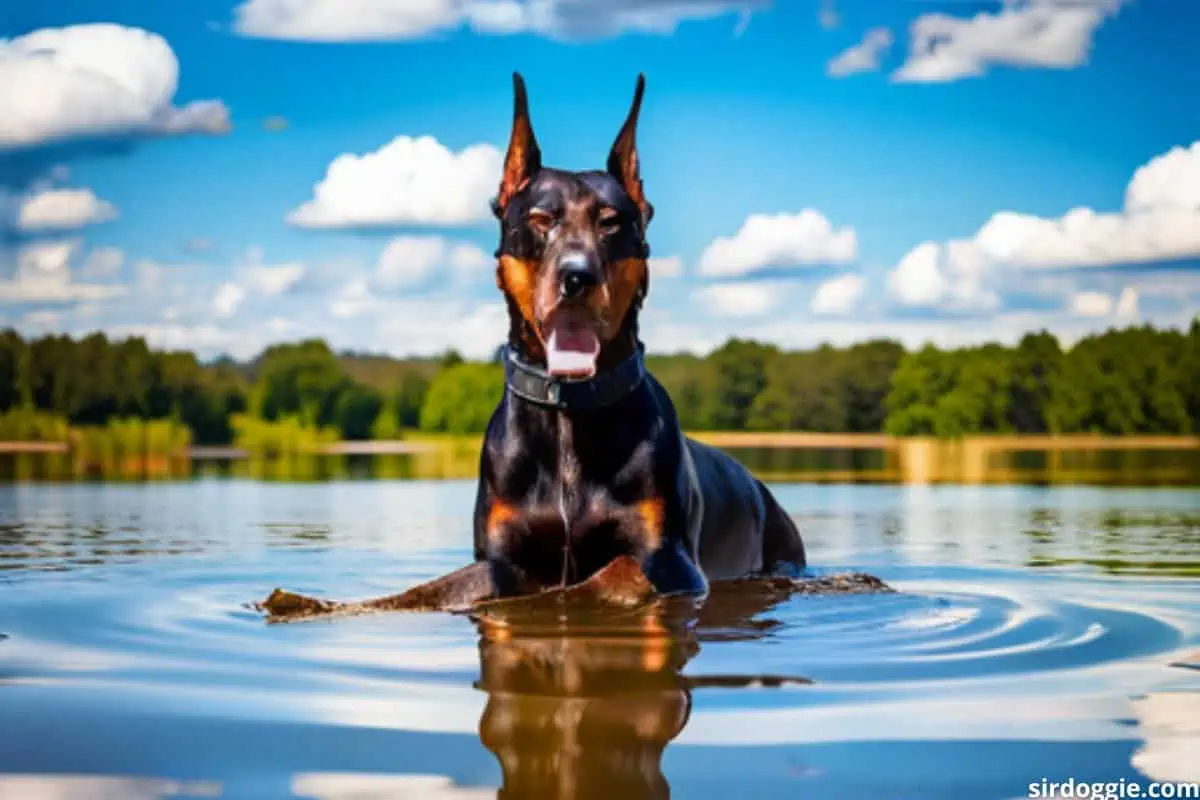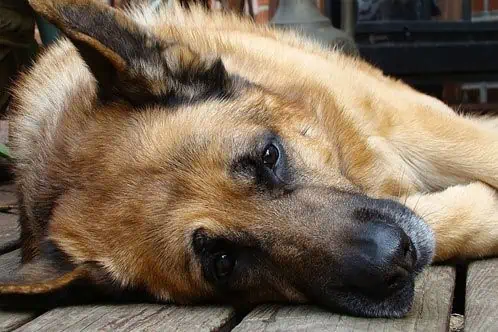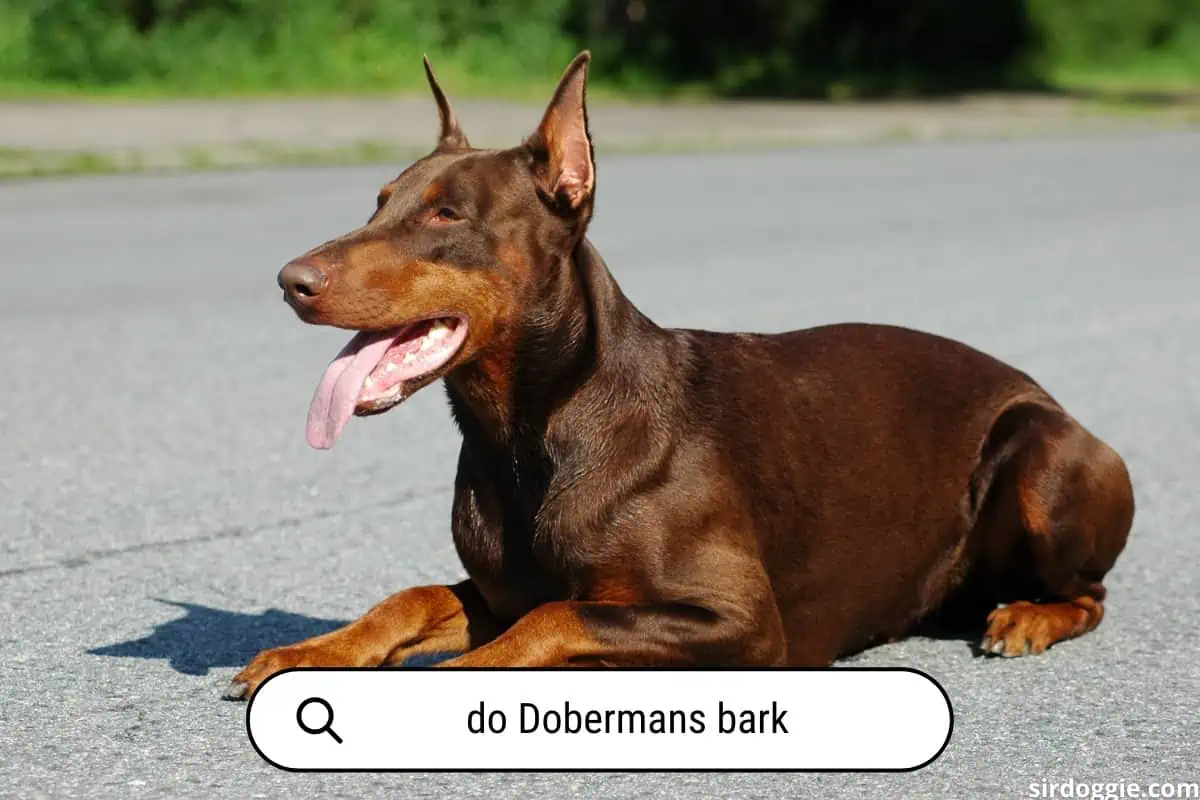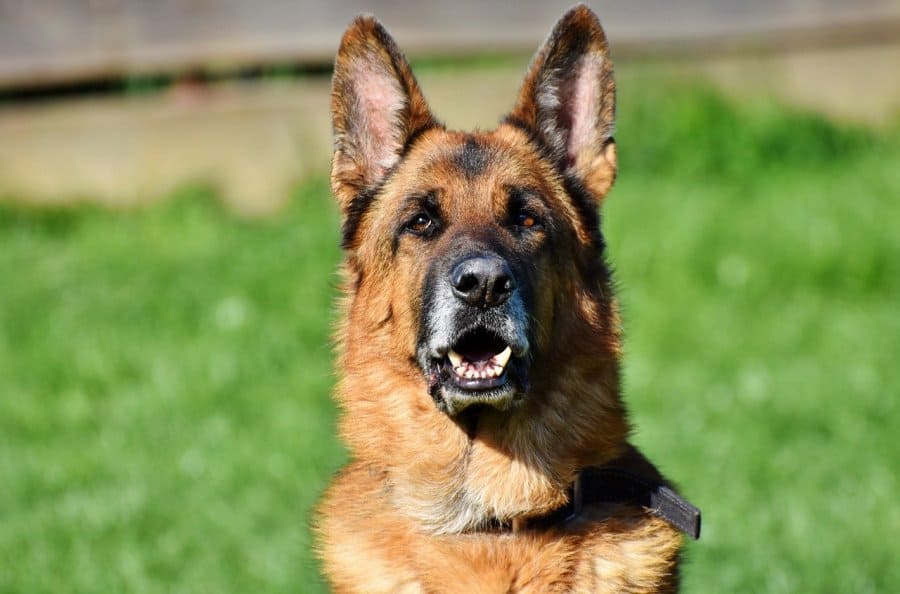Doberman vs German Shepherd [Compared]
Doberman and German Shepherd are two of the most popular breeds of dogs in the world. Both breeds are intelligent, loyal, and make excellent pets. However, when it comes to choosing between the two, there are some key differences that you should be aware of.

One of the most obvious differences between the two breeds is their appearance. Dobermans are known for their sleek, muscular bodies and their distinctive cropped ears and docked tails. German Shepherds, on the other hand, are larger and more muscular with a thick, double coat of fur.
Another key difference between the two breeds is their temperament. Dobermans are known for being highly energetic and playful, while German Shepherds tend to be more reserved and serious. Both breeds are highly trainable and make excellent guard dogs, but Dobermans are often considered to be more aggressive and territorial than German Shepherds.
| Category | Doberman | German Shepherd | Best Suited For |
|---|---|---|---|
| Temperament | Dobermans are known for their loyalty, intelligence, and strong protective instincts. They are energetic and require a lot of mental and physical stimulation. They can be reserved with strangers but are generally sociable. | German Shepherds are intelligent, confident, courageous, and steady. They are excellent working dogs known for their versatility and protective nature. They can be aloof with strangers but tend to be good with family members. | Both breeds are loyal and protective, making them good for owners wanting a dog with guarding capabilities. The Doberman may be better suited for active individuals, while the German Shepherd is a versatile choice for both active families and individuals. |
| Trainability | Dobermans are highly intelligent and respond well to training. They excel in obedience, agility, and work-related tasks. However, they need a consistent and firm handler to guide them. | German Shepherds are among the most trainable dog breeds. They thrive in a variety of roles due to their intelligence and desire to please. They also need consistent and positive training methods. | If you’re interested in high-level obedience or agility work, either breed could excel. A German Shepherd might be slightly easier for a first-time dog owner due to their strong desire to please. |
| Exercise Needs | Dobermans are energetic and require regular daily exercise to keep them happy and healthy. They enjoy activities like running, agility courses, and obedience training. | German Shepherds are active and versatile. They need lots of physical activity, including walks, playtime, and mental stimulation. They excel in tasks like herding, search and rescue, and agility training. | Both breeds need an owner who can provide ample exercise. However, a Doberman may be better suited for owners who enjoy high-energy activities like running, while a German Shepherd may be better for those interested in a variety of activities. |
| Size and Living Conditions | Dobermans are large dogs that require space to move around. However, they can adapt well to living in apartments if they receive enough exercise. They prefer warmer climates due to their thin coats. | German Shepherds are also large dogs that prefer having a yard to play in. However, like Dobermans, they can adapt to apartment living if given enough exercise. They are adaptable to both hot and cold climates. | If living in an apartment, both breeds can be suitable if you can provide enough exercise. For those living in colder climates, a German Shepherd might be a better choice. |
| Health | Dobermans are generally healthy but can be prone to certain conditions such as cardiomyopathy, hip dysplasia, and von Willebrand’s disease. Regular check-ups and a healthy diet can mitigate some health risks. | German Shepherds are also generally healthy but are prone to health issues like hip and elbow dysplasia and degenerative myelopathy. Regular vet check-ups and a balanced diet are important for this breed. | Both breeds require vigilant owners who are committed to regular veterinary care. Neither breed stands out as significantly healthier, but prospective owners should be aware of potential breed-specific issues. |
| Lifespan | Dobermans typically live between 10-12 years. | German Shepherds typically live between 9-13 years. | Both breeds have similar lifespans, so there’s no clear winner in this category. |
| Grooming | Dobermans have short coats that require minimal grooming. Regular brushing can help keep their coat shiny and healthy. They are average shedders. | Germans have a double coat that sheds heavily, especially during shedding season. They require regular brushing to manage shedding and keep their coat healthy. | If minimal grooming and shedding are a priority, the Doberman would be a better fit. |
a double coat that sheds heavily, especially during shedding season. They require regular brushing to manage shedding and keep their coat healthy. | If minimal grooming and shedding are a priority, the Doberman would be a better fit.|
Note: The characteristics of individual dogs may vary and are greatly influenced by socialization, training, and upbringing. This table provides a general comparison and does not guarantee specific behaviors.
Physical Characteristics

Size
Dobermans and German Shepherds are both medium to large-sized breeds, but there are some differences in their sizes. Dobermans typically weigh between 60-100 pounds and stand 24-28 inches tall at the shoulder. German Shepherds, on the other hand, weigh between 50-90 pounds and stand 22-26 inches tall at the shoulder.
Coat
Both breeds have a double coat, but the texture and length of their fur differs. Dobermans have a short, sleek coat that lies close to their body. German Shepherds have a medium-length coat that is thicker and coarser than a Doberman’s coat.
Color
Dobermans and German Shepherds have distinctive coat colors. Dobermans are typically black, red, blue, or fawn, with rust-colored markings on their face, chest, and legs. German Shepherds can be black, tan, or sable, and some have a combination of these colors.
Build
Dobermans and German Shepherds have a muscular build, but their body shapes differ slightly. Dobermans have a leaner, more athletic build, while German Shepherds have a more substantial, sturdy build.
Overall, both breeds have unique physical characteristics that make them easily distinguishable from one another.
Temperament
When it comes to temperament, both Dobermans and German Shepherds are known for their loyalty and protective nature. However, there are some differences that set them apart.
Trainability
German Shepherds are highly trainable and are often used as police and military dogs due to their intelligence and ability to learn quickly. Dobermans are also intelligent and trainable, but they can be more stubborn and independent-minded, requiring a firm and consistent hand during training.
Socialization
Both breeds require early socialization to ensure they are well-behaved and friendly around people and other animals. German Shepherds tend to be more outgoing and friendly with strangers, while Dobermans can be more reserved and cautious.

Aggression
Both breeds have the potential to be aggressive if not properly trained and socialized. German Shepherds are known to be protective of their family and can become aggressive towards strangers if they feel threatened. Dobermans, on the other hand, have a reputation for being more aggressive and territorial, but this can be mitigated through proper training and socialization.
Health
Common Health Issues
Dobermans and German Shepherds are both prone to some common health issues. Hip dysplasia, bloat, and allergies are some of the most common problems that both breeds face. Additionally, both breeds are prone to spinal problems, such as degenerative myelopathy.
Dobermans are also prone to a genetic heart condition called dilated cardiomyopathy. This condition can cause the heart to become enlarged and weaken, leading to heart failure. German Shepherds are prone to a condition called exocrine pancreatic insufficiency, which affects the pancreas and can cause malnutrition.
Life Expectancy
On average, both Dobermans and German Shepherds have a life expectancy of 10-13 years. However, this can vary depending on the individual dog’s health and lifestyle.
Exercise Needs
Both Dobermans and German Shepherds are high-energy breeds that require plenty of exercise. They need daily walks and plenty of playtime to stay healthy and happy. Dobermans are known to be more energetic and require more exercise than German Shepherds.
It’s important to note that both breeds can be prone to obesity if they don’t get enough exercise. Obesity can lead to a variety of health problems, so it’s important to make sure your dog is getting enough physical activity.
Grooming and Maintenance

Grooming Needs
Both Dobermans and German Shepherds require regular grooming to maintain their coats and keep them healthy.
Dobermans have a short, smooth coat that is easy to maintain. Weekly brushing with a soft-bristled brush is usually sufficient to remove loose hair and dirt. They only need to be bathed occasionally, as over-bathing can strip their skin of natural oils.
German Shepherds, on the other hand, have a thicker, double coat that sheds heavily twice a year. They require more frequent brushing, at least two to three times a week, to prevent matting and tangling. During shedding season, daily brushing is necessary to remove loose hair and prevent it from spreading throughout the house. They also need to be bathed more often than Dobermans to keep their coat clean and healthy.
Maintenance Costs
The cost of maintaining a Doberman or German Shepherd can vary depending on several factors, including the quality of food, grooming supplies, and veterinary care.
Dobermans are generally less expensive to maintain than German Shepherds. Their short coat requires less grooming, and they are less prone to health issues. The average annual cost of maintaining a Doberman is around $1,000.
German Shepherds are larger and require more food, grooming supplies, and veterinary care. They are also prone to more health issues, such as hip dysplasia and skin allergies. The average annual cost of maintaining a German Shepherd is around $1,500.
Regardless of breed, it is important to budget for regular veterinary check-ups, vaccinations, and preventative care to keep your dog healthy and happy.

Family Dog Expert Author
Hi there! I’m Stuart, a devoted dog lover and family dog expert with over a decade of experience working with our furry companions. My passion for dogs drives me to share my knowledge and expertise, helping families build strong, loving bonds with their four-legged friends. When I’m not writing for SirDoggie, you’ll find me hiking, playing with my beautiful dog, or studying music.